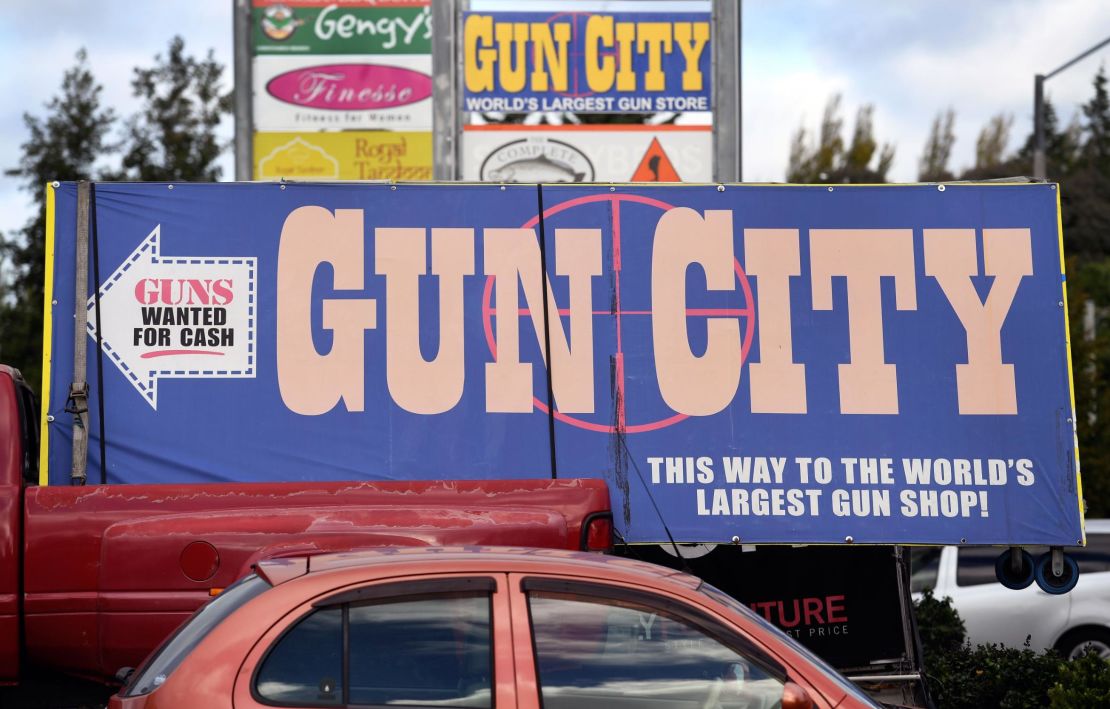More than 11,000 people have signed a petition against proposed tougher gun laws in the wake of the Christchurch mosque massacres, criticizing the changes as “unjust to law-abiding New Zealand citizens.”
Prime Minister Jacinda Ardern announced the ban on military-style semi-automatic weapons, assault rifles and high-capacity magazines only days after the mass shootings at two mosques claimed 50 lives on March 15.
New legislation will be introduced in Parliament next week, and Ardern has said it will be passed as a matter of urgency, skipping the normal public consultation process.
But the petition – which was launched on Monday and has gained over 11,100 signatures at the time of writing – criticizes the proposal and calls for an in-depth consultation period.
“We believe that recent changes to New Zealand firearms regulation is ill-advised, partly due to the speed at which they have been implemented and also due to (understandable) emotionally driven public pressure,” the petition states.
Users do not have to verify their New Zealand citizenship or identity to sign the petition.
Gun City, which describes itself as the nation’s largest firearms dealer, is promoting the petition on its website, and demanding that firearms license holders are treated fairly and reasonably. The company’s managing director David Tipple said the Christchurch gunman had bought four weapons from Gun City.
Speaking the wake of the massacre Tipple said New Zealand was a “country of laws” and “not a country of emotional responses.”
An estimated 1.2 million guns are in circulation in the country – around one for every four people. Many are used by farmers or recreational hunters.
Blair Jones, based in the New Zealand city of Nelson, told CNN that he enjoyed harvesting organic and free range meat, but the ability to do that was being taken away.
“We are law-abiding citizens who have jumped through all their hurdles and abide by all their laws, but we are being labeled as untrustworthy criminals,” he said. “None of us pulled the trigger, but we are the ones being punished.”
“It feels like the whole country is turning on us … We are supposed to be in a democracy.”
Although Ardern’s proposed gun reforms have drawn support across the political spectrum, right-wing New Zealand politician David Seymour has raised similar concerns about the pace of the changes.
“By forcing gun laws through it three weeks, the government will ensure there is no real opportunity for New Zealanders to have their voices heard on the proposals,” Seymour, the leader of New Zealand’s ACT party, said. “The best way to show defiance is to refuse to erode our free society.”
Council of Licensed Firearms Owners spokesperson Nicole McKee has also said the government is moving too quickly.

Widespread support
Ardern has drawn praise for acting swiftly to tighten the country’s gun laws which are lax compared to many other Western countries. Last week, almost 70,000 people signed a separate petition calling for gun control reform.
The government is working on a buy-back scheme for weapons which Ardern said could cost between NZ$100 million to NZ$200 million ($68-136 million). New Zealand has also already reclassified a number of semi-automatic guns and is taking action to prevent people from stockpiling the weapons.
“On 15 March our history changed forever. Now, our laws will too,” Ardern said when she first announced the changes, only six days after the attacks by a suspected white supremacist. “We are announcing action today on behalf of all New Zealanders to strengthen our gun laws and make our country a safer place.”
In the wake of the shooting, several farmers have voluntarily surrendered their guns, including 46-year-old sheep and beef farmer John Hart.
Hart said he was worried his semi-automatic firearm could fall into the wrong hands. “Now I can know that it never harmed a person, so I have some reassurance in that,” he told CNN.
Fish and Game, which represents New Zealand’s hunters, said in a statement the reforms were the right decision.
“This move has the support of all political parties and the wider public and that is appropriate in the tragic circumstances in which it is being made,” it said.
Rural advocacy organization Federated Farmers has also voiced support for tougher gun laws.
“The surrender or destruction of firearms that don’t meet the new controls will be disappointing to many farmers and others,” said its rural security spokesperson Miles Anderson.
“But a clampdown is the responsible path to take to try to ensure we’re never witness to this kind of tragedy on our shores again.”
CNN’s Christina Zdanowicz contributed to this report.



